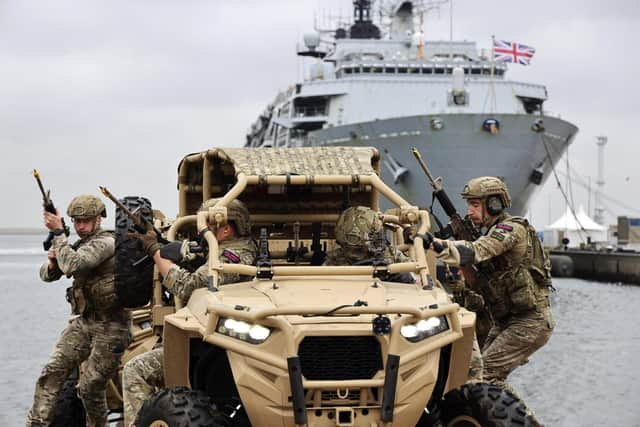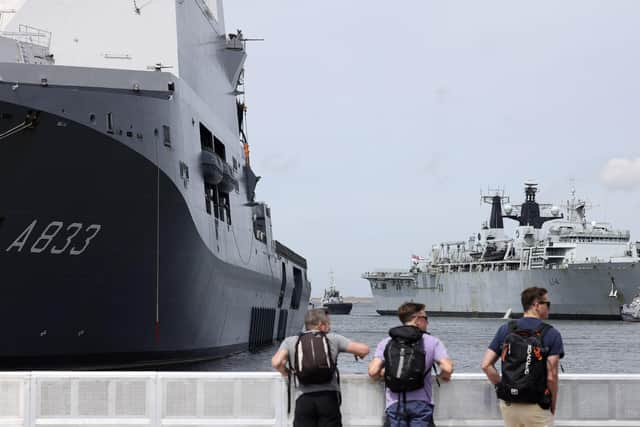Royal Navy: Force and Netherlands to explore developments in making new specialised amphibious warships
and live on Freeview channel 276
They will join the Netherlands in looking into new technologies. The UK-Netherlands Amphibious Force – which celebrated its 50th anniversary in Den Helder last week – shared plans on ships to carry the vehicles, boats, aircraft, and weaponry of their highly-trained marines, and land them ashore wherever they are needed.
The Statement of Intent on the new Multi-Role Support Ships was made between UK defence minister for procurement James Cartlidge and Dutch defence minister Kajse Ollongren. HMS Albion, the Royal Navy’s amphibious flagship, played host to the events.
Advertisement
Hide AdAdvertisement
Hide Ad

This included the signing of a new memorandum of understanding – which agrees to grow the relationship between the two navies and marine forces. The original document was signed in May 1973.
Both countries navies and marines will be tightly knitted for generations to come. This will involve the sharing of knowledge, training, deployments, operations and equipment.
First Sea Lord Admiral Sir Ben Key, who was part of the proceedings at Den Helder Naval Base, said: ‘This year is a particularly special one to be in Den Helder alongside our Dutch friends, celebrating both Navy Days and the signing 50 years ago of an agreement that has enabled our amphibious forces to train, exercise and deploy together.
‘It has resulted in our closest and most significant amphibious relationship. I am delighted that our nations have today signed an agreement to deepen this through further exercises and training but most significantly, to pursue the next generation of littoral strike ships, setting the stage for the next 50 years of our cooperation.’
Advertisement
Hide AdAdvertisement
Hide Ad

SEE ALSO: Patrol vessel stalks Russian warship
The UK’s future Multi Role Support Ships will be designed to operate in amphibious task groups. These will be known as Littoral Response Groups, which are able to rapidly deploy and react to crises around the world.
These task groups will have increased capacity and can bolt onto Carrier Task Groups – allowing for Commandos Forces and equipment to be deployed ashore where it’s most needed. The UK and the Netherlands have also announced a partnership with the US and Denmark to deliver high priority air defence equipment to Ukraine.